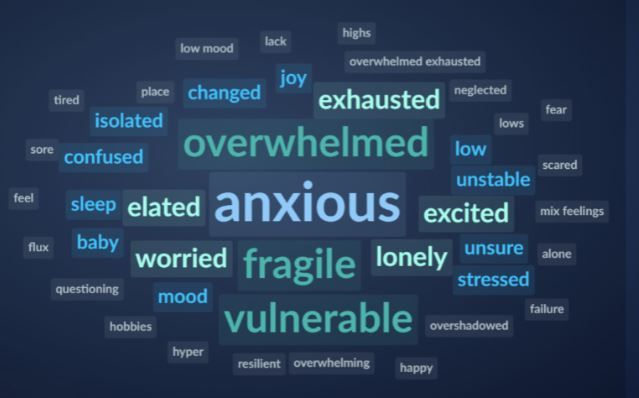Resources launched to improve post-partum health for women
Posted on: 28 February 2020
Vital resources to improve post-partum health for thousands of women have been launched by the MAMMI Study at the School of Nursing and Midwifery at Trinity.

The on-line resources (called ON-TRACK, Towards Recovery After Childbirth through Knowledge) launched at a recent seminar in Dublin, provide guidance, information and support through nine on-line self-help educational videos addressing definitions of anxiety, sexual health issues and pelvic girdle pain.
The findings from the MAMMI Study, which examined the health problems experienced by over 3,000 first time mothers, show that following childbirth, many women experience a range of preventable and treatable health issues. These issues can negatively affect the physical and mental health and well-being of women when left untreated. Women often struggle to find reliable resources and information about maternal postpartum health. There is often a silence around health issues that arise, due to embarrassment, fear or stigma, which can leave women feeling alone or lead them to believe that some health issues are ‘normal’ or are simply a consequence of pregnancy and birth. This silence can prevent women from speaking out and seeking help from their healthcare providers.
Professor Cecily Begley, Chair of Nursing and Midwifery at Trinity said:
‘We know from the MAMMI study that many women have health problems after birth, but receive little organised support and help. These videos have the potential to improve postpartum health for thousands of women, in their own homes, throughout Ireland.’
The new ON-TRACK resources will enable women to self-assess whether or not they have health problems associated with anxiety, sexual health issues and pelvic girdle pain and explain how these issues can impact women’s lives; providing strategies aimed to reduce confusion about what is and what is not ‘normal recovery’. The information provided helps women to help themselves safely and guides them where to get further support, if needed.
The resources have been developed with women, maternal mental health experts, physiotherapists, midwives, and researchers from Trinity.

Moira McLoughlin, Antenatal Educator and MAMMI participant spoke at the seminar about her realisation after giving birth that while her baby’s health was important, her own health postpartum was also important. She highlighted the necessity of listening to women and facilitating conversations on maternal postpartum health issues.
Somebody also has to look after me… Women need to be listened to, and that’s what starts the conversation.
Regarding the issue of post-partum anxiety Professor Agnes Higgins, Professor in Mental Health, School of Nursing and Midwifery discussed that while stress/anxiety is a normal part of everyday life, it is important to recognise when it is becoming an issue – when it is persistent, excessive (the stress you experience is not proportional to the situation), intrusive, or disruptive – and know how to seek professional help. Using the ON-TRACK resources,Professor Higgins demonstrated how to create a Wellness Plan;
how to stop anxiety stopping you,
she said.
Cinny Cusack, Physiotherapist Manager at the Rotunda Hospital also spoke at the seminar saying:
By knowing the signs of pelvic girdle pain (PGP), and by knowing that PGP is a health issue, women can identify whether they have experienced PGP themselves, and know when to seek medical help, if needed.
Dr Deirdre O’Malley, Clinical Tutor at the School spoke about how postpartum women with positive/accepting perception of body image were less likely to have sexual health issue. Women talked to her about ‘accepting their body for the things it had achieved. They said to themselves ”Yes, I now have a belly, but I’ve had a baby.’‘ The new ON-TRACK videos, provide tips on the language to use to start conversations about sexual health issues with a new mother’s healthcare provider.
Professor Cecily Begley closed the seminar, with a reminder for women :
Any problem that persists after you have a baby is not normal and can be treated. Please look for help today.
Speaking on the Health Research Board’s funding of the project, Darrin Morrissey, CEO of the HRB said:
The HRB is committed to getting research findings into the hands of people who need them most. Our longstanding investment in the MAMMI study continues to deliver solid evidence which is the basis of these educational videos that provide useful advice to women who are dealing with sensitive issues post pregnancy. They clearly demonstrate what the HRB Knowledge Exchange and Dissemination Awards are about.
ON-TRACK is part of a suite of online resources on maternal postpartum health that were co-developed with women who took part in the MAMMI Study.
The videos are available on the MAMMI Study’s YouTube channel HERE with content provided in English, Lithuanian and Romanian.
The ON-TRACK project has been funded through the Health Research Board (HRB) Knowledge Exchange Dissemination Scheme (KEDS).
